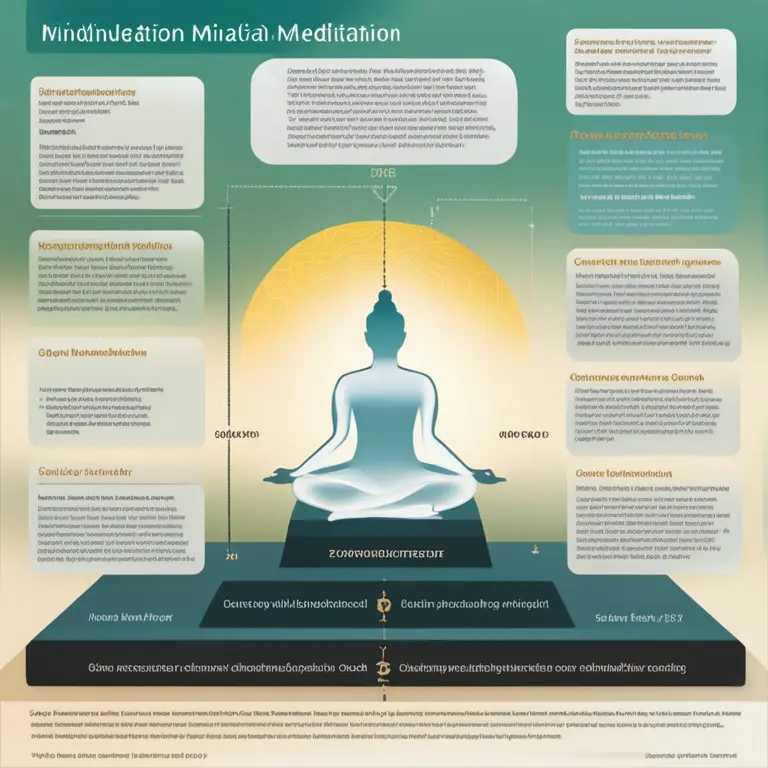
Mindfulness Meditation and Cognitive Agility
Explore how mindfulness meditation enhances cognitive flexibility, aiding mental adaptability and resilience in a changing world.
article by Hina Kurosawa
Meditation in the Modern Mind
In an era where change is the only constant, the ability to adapt our thinking is more valuable than ever. Cognitive flexibility, the mental capability to switch between thinking about multiple concepts or to adapt behavior in the face of new, unexpected situations, is a crucial skill. Meditation, once seen as an esoteric practice, is now recognized by science as a powerful tool for enhancing cognitive agility. With societies becoming increasingly dynamic, this practice is becoming a cornerstone for individuals aiming to thrive in our fast-paced world.

Mindfulness: A Pathway to Flexibility
Mindfulness meditation, focused on the awareness of the present moment, has shown great promise in augmenting cognitive flexibility. Researchers hypothesize that this form of meditation helps by reducing cognitive rigidity, an obstacle to adaptive behavior. By consistently bringing attention back to the present, practitioners learn to engage with their environment consciously, as opposed to reacting out of habit or autopilot responses. Such mental training cultivates an open and receptive mind state conducive to flexible thinking.

The Science of Mindfulness
Studies on mindfulness meditation have reported changes in brain function and structure. Neuroimaging studies in 2024 have pinpointed areas in the brain associated with cognitive flexibility that are affected by regular meditation practice. These include the prefrontal cortex, the seat of higher executive functions, which shows enhanced connectivity and activity. This illustrates not only the plasticity of our brains but also the tangible benefits that mindfulness can have on our ability to think creatively and adaptively.

Mental Resilience and Adaptation
Beyond its impact on brain structure, meditation has an influential role in stress reduction and emotional regulation. A reduced stress response is linked to better cognitive flexibility because a calm mind is more capable of considering a wider range of solutions to problems. Individuals who practice mindfulness are better equipped to approach challenges without the typical stress-induced narrow focus, thus positioning themselves to respond creatively and resiliently in the face of adversity.

Integrating Mindfulness into Daily Life
The beauty of mindfulness meditation lies in its simplicity and accessibility. Without the need for equipment or substantial time investment, it's a practice that can be woven into the fabric of everyday life. Whether it’s through guided sessions, mobile applications, or simply dedicating a few moments to focus on one's breath, the benefits of mindfulness are within reach for anyone willing to engage. Encouraging this practice can help build a society that values mental flexibility and is better prepared for the future.
Sustaining Cognitive Flexibility
As we look beyond 2024, the integration of mindfulness meditation into mainstream wellness practices has the potential to reshape our collective approach to mental health and cognitive care. By encouraging lifelong habits of mindfulness, individuals can maintain and even improve their cognitive flexibility as they age. This can contribute to a lifestyle that not only supports a sharper mind but also a more fulfilling, present, and responsive way of life.
Published: 1/18/2024
Modified: 1/18/2024
More predictions
Come back here soon to learn more about yourself and your future


Can Meditation Impact On Depression?
Meditation can be a powerful tool for mental health. Discover whether incorporating a meditation practice can alleviate depressive symptoms.


How Meditation Reshapes Our Brains
Discover the transformative power of meditation and its profound impact on brain structure and function in this insightful article.


The Significance of Modern Meditation
Discover the crucial role meditation plays in fostering well-being, focus, and balance in today's fast-paced world.